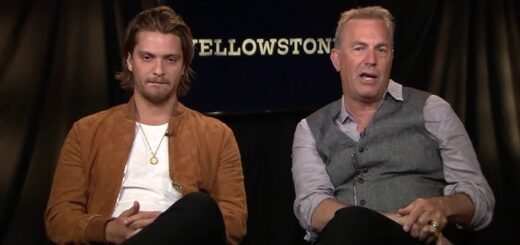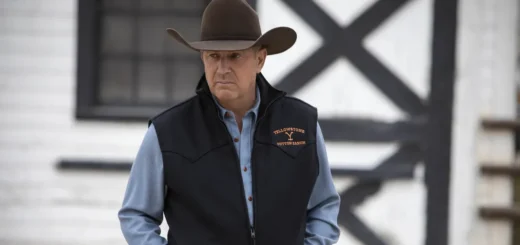“Horizon: An American Saga Review: Kevin Costner’s Western Struggles with Length and Coherence”
When is a film not truly a film? This question arises in the context of Kevin Costner’s ambitious Western, Horizon: An American Saga – Chapter 1, which premiered at the Cannes Film Festival.
On the surface, it resembles a film: a cast of attractive actors in meticulously crafted costumes, stunning landscapes featuring snowy mountains and desert rock formations, and even the expected shoot-outs and horseback chases. Having directed notable Westerns like Dances with Wolves and Open Range, Costner clearly has experience in the genre. However, despite these elements, Horizon ultimately falls short of what constitutes a coherent film—especially a Western—which typically requires a plot, credible character development, and a clear narrative structure with a beginning, middle, and end. Unfortunately, Horizon lacks all of these.
The film’s multiple storylines fail to intertwine meaningfully, and even on their own, each segment feels tedious and drags due to painfully slow dialogue. This disorganization is somewhat expected given that Costner has been open about his intention for this project not to be a standalone film. Chapter 1 is set for theatrical release in June, followed by Chapter 2 in August, with discussions of additional chapters still in the works. While splitting a narrative into multiple parts is not unusual in contemporary cinema—think Kill Bill, the Harry Potter finale, or the Hunger Games series—those films ensure that each segment provides a satisfying experience on its own. In contrast, Horizon: Chapter 1 fails to deliver this promise, with Costner not crafting the material into a self-contained narrative. It resembles a lengthy pilot episode of a series that overstays its welcome at three hours.
The film begins in 1859 with settlers in Arizona’s San Pedro Valley measuring land for their future homes, only for their plans to be thwarted by Apache warriors. Fast forward four years, and a small township emerges, prompting another violent Apache raid. One of the few survivors is a widow (Sienna Miller) who finds refuge with a strong army lieutenant (Sam Worthington). Another thread follows a group of bounty hunters hunting down the Apaches responsible for the initial violence, while a disconnected storyline features a wagon train in western Kansas led by Luke Wilson’s character, which contributes nothing to the overall narrative. After an hour, Costner’s own character appears as a noble gunslinger protecting a sex worker (Abbey Lee) and a child in her care from vengeful enemies, yet this storyline remains entirely separate from the others.
The primary issue with Horizon is the disjointed nature of its narratives, compounded by the lack of engagement within each segment. The dialogue is slow and fails to make the characters feel real. For example, a late declaration of love between the widow and the lieutenant feels unearned, lacking the development to make it resonate. Key relationships throughout the film seem to be missing critical elements.
What causes Horizon to be so incoherent? Why do the characters feel underdeveloped, and the historical backdrop appear muddled? The unsettling thought is that in editing this lengthy endeavor, Costner may have cut essential material, leaving the possibility of a director’s cut looming, one that could be even longer than this already tedious entry.


